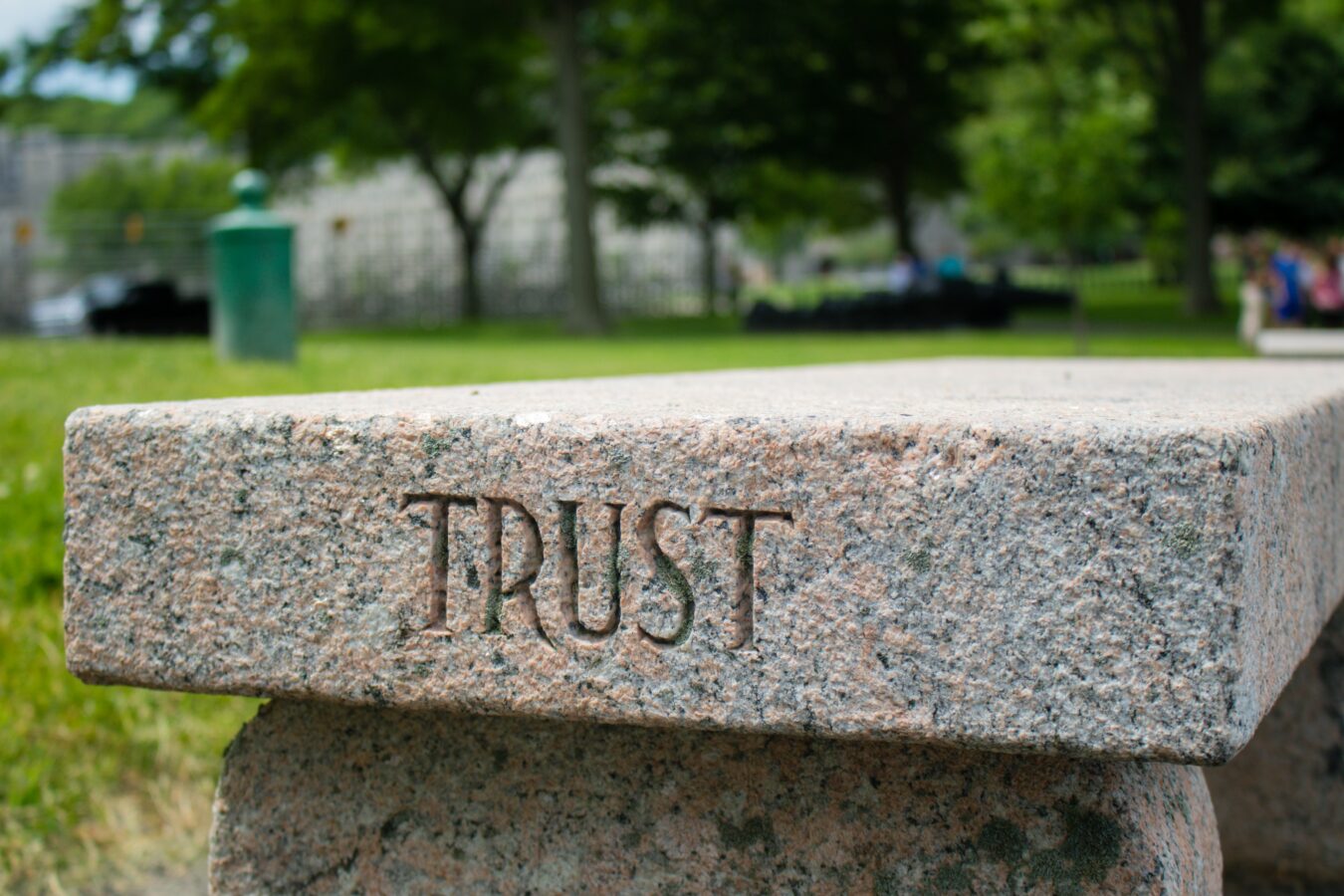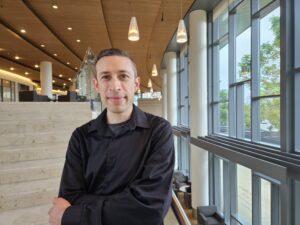
MIT GOV/LAB: Tell us a little bit about some of your recent research experience, and what drew you to the projects at MIT GOV/LAB?

Nat: I joined the lab after several years with The Policy Lab at Brown University working on social norms and beliefs surrounding COVID-19, and a short project on private sector climate policies at Harvard Business School. COVID and climate change might seem like wildly different topics, but to my mind there’s a structural analogue: they’re both large-scale, complex problems that can only be addressed through coordinated actions requiring groups to understand the underlying, invisible causes of the problem and the implications of potential responses. This kind of coordination can only be achieved through trust, my perennial fascination and one of MIT GOV/LAB’s core concerns.
It sounds like you have a through line in your research interests on collective knowledge and collective behavior. Why?
Nat: I came to applied research after a few years in cognitive science labs, and I started out working on the “community of knowledge” framework. The basic idea is that humans have adapted to maximize group knowledge. Arguably, other animals have too, but they don’t have books, computers, and all the rest to transmit that knowledge to each other and to future generations. Now a single person can’t know all of the stuff in those books and computers, but in some ways she carries on as if she does, making decisions in consequential domains based on knowledge that neither she nor any other individual person has. Consider cigarette smoking. Many people have the belief that it increases the risk of lung cancer, but few could explain why they have this belief, much less cite the evidence that supports it. You could go online and find the papers that support it, but you couldn’t possibly assess the accuracy of those papers—other people did that already (we hope). Even a scientist trained in one field (say, demography) could assess only some bits of evidence (demographic trends) but not others (findings from cellular biology, or whatever). Clearly this radically distributed system works, because humanity is an extraordinarily successful species. But since no single person knows all the stuff they need to know in order to survive and thrive, the system has to work largely on person A believing what person B says. Trust built all of this!
Why should we care about this in the real world?
Nat: You know, at first I had a hard time answering that question when practitioners or policy people posed it. The “policy implications”section of one of our papers was admittedly a bit lame. But then I had the good fortune to support the Rhode Island Department of Health’s COVID response, almost from day one of the pandemic. And it became increasingly clear that why people trust information and guidance from state and federal public health authorities—why they trust government, in other words—is a non-theoretical concern. We watched trust in public health actors decline in real time for some groups, which was fascinating as a researcher but dismaying as a citizen. Of course, political scientists have been worrying for a while about a parallel problem, the decline in trust in government writ large. Long story short: how collective knowledge and behavior actually works is a matter of enormous consequence for anyone hoping to foster or repair that trust, as many governments are.
You’ll be working with Research Scientist Lula Chen on many research projects this year that touch on trust-building, technology, and citizen engagement. What are you looking forward to?
Nat: We’re collaborating with Busara Center for Behavioral Economics on survey experiments in Kenya examining trust in government under emerging technologies. We’re exploring research designs on these dynamics in countries that have experienced intense conflicts, as well as on government-sponsored deliberative polling. Along the way, we’re trying to get our heads screwed on straight about the concept and measurement of trust—ask five researchers what that word means and you’ll give five different answers. Given my fascination with this “community of knowledge” idea and the bald fact that technology is changing the human system at astonishing speed, these are questions I’ve wanted to work on for a long time. Seriously, we have a paper from 2019 that basically says “someone please do this stuff.”
Header image via Dave Lowe on Unsplash.
Headshot courtesy of MIT Political Science.
